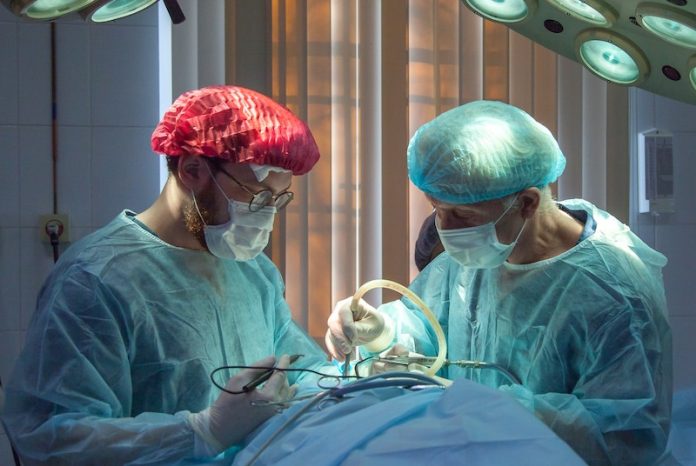
In a new study, researchers found that toxic man-made chemicals—such as polychlorinated biphenyls and organochlorine pesticides—that are absorbed into the body and stored in fat may be released into the bloodstream during the rapid fat loss that follows bariatric surgery.
The research was conducted by a team at the Johns Hopkins Bloomberg School of Public Health.
About 16 million people in the U.S. are morbidly obese, defined as having a body mass index (BMI) of 35 kg/m2.
Their extreme overweight condition confers a relatively high risk of type 2 diabetes, cardiovascular disease, hypertension, and many cancers.
For almost three decades, the U.S. National Institutes of Health has recommended weight-loss surgeries called bariatric surgeries—including stomach stapling and gastric bypass procedures—for people who are morbidly obese and have serious obesity-related conditions such as diabetes, as well as for anyone with a BMI over 40.
More than 200,000 bariatric surgeries are now performed in the country every year.
Although bariatric surgeries are known to have potential adverse side effects, including micronutrient deficiencies, the release of environmental toxicants from fat storage isn’t one that has been studied before.
But recently researchers have realized that as these surgeries were becoming common, and, since they involved rapid fat loss, they could potentially release toxicants such as PCBs into the bloodstream of patients.
In the study, the team examined 26 people undergoing bariatric weight-loss surgery and found evidence of post-surgery rises in the bloodstream levels of environmental toxicants that are known to be stored long term in fat, including PCBs, organochlorine pesticides, and PCB-like polybrominated diphenyl ethers.
They also found that participants born before 1976—when most of these chemical compounds were still widely used—tended to have much higher bloodstream levels of the chemicals, compared to younger participants.
A large set of environmental toxicants, including carcinogenic PCBs, are oily, “lipophilic” compounds that tend to be absorbed into—and persist indefinitely in—the fat molecules that are stored in fat cells.
In general, they are considered “persistent organic pollutants” (POPs) because they are not broken down quickly in animals, plants, soils, or bodies of water.
The researchers note that studies with larger populations need to be done to verify the findings in this small-sample study.
Further research could also determine if there are any biological effects, especially on sensitive, fat-rich organs such as the liver and brain, of the toxicant doses involved—which were mostly on the order of billionths of a gram per gram of serum lipids.
One author of the study is John Groopman, Ph.D., the Edyth H. Schoenrich Professor in Preventive Medicine at the Bloomberg School.
The study is published in Obesity.
Copyright © 2019 Knowridge Science Report. All rights reserved.



